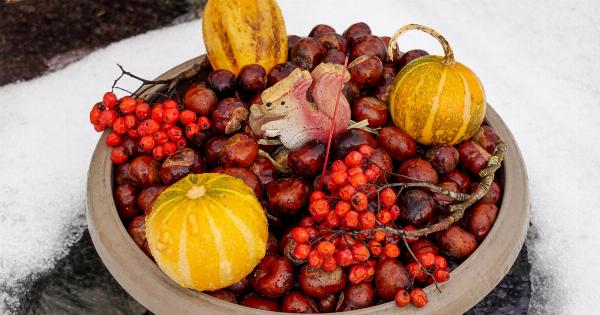Getting sick with the flu can be a miserable experience, but there are steps you can take to help your body recover faster and stay healthy.
Along with rest and staying hydrated, the food you eat plays a crucial role in boosting your immune system and aiding in the recovery process. In this article, we will explore a flu recovery diet that can help fuel your body with essential nutrients and promote a speedy recovery.
1. Hydration is Key
When battling the flu, it’s important to stay hydrated as you may experience increased sweating and a higher body temperature.
Drinking plenty of fluids, such as water, herbal teas, and clear broths, helps replenish lost fluids and flush out toxins from your system.
2. Include Vitamin C-Rich Foods
Vitamin C is known to boost your immune system and has been found to reduce the duration and severity of cold and flu symptoms. Include foods like citrus fruits, strawberries, kiwi, and bell peppers in your diet for a good dose of vitamin C.
3. Load Up on Antioxidants
Antioxidants help protect your body against free radicals and aid in the healing process. Include foods such as berries, dark leafy greens, nuts, and seeds, which are packed with antioxidants like vitamin E, beta-carotene, and selenium.
4. Get Adequate Protein
Protein is crucial for repairing tissues and promoting a strong immune system. Include lean sources of protein such as chicken, turkey, fish, eggs, and legumes in your meals to aid in the recovery process.
5. Don’t Forget About Zinc
Zinc is an essential mineral that supports immune function and aids in wound healing. Incorporate zinc-rich foods like oysters, beef, pumpkin seeds, and yogurt into your flu recovery diet.
6. Incorporate Garlic and Ginger
Both garlic and ginger have antimicrobial properties and can help alleviate flu symptoms. They also add a flavor kick to your meals. Consider adding them to soups, stir-fries, or herbal teas for an extra immune boost.
7. Focus on Nutrient-Dense Foods
Eating a variety of nutrient-dense foods helps provide your body with the vitamins and minerals it needs for optimal recovery.
Include foods like leafy greens, cruciferous vegetables, colorful fruits, whole grains, and healthy fats like avocados and olive oil.
8. Incorporate Immune-Boosting Herbs and Spices
Certain herbs and spices have immune-boosting properties that can aid in your recovery. Add herbs like oregano, thyme, and rosemary to your meals for their antimicrobial properties.
Turmeric, cinnamon, and cloves are also known for their immune-stimulating effects.
9. Avoid Processed and Sugary Foods
Processed foods and excessive sugar can weaken your immune system and hinder the recovery process. Stay away from sugary snacks, sodas, and processed snacks as they provide little nutritional value and can worsen inflammation in your body.
10. Rest and Listen to Your Body
While the flu recovery diet is essential for supporting your body’s healing process, it’s equally important to rest and listen to your body. Give yourself enough time to recover, and don’t push yourself too hard.
Get ample sleep and allow your immune system to do its job.
Conclusion
The flu can take a toll on your body, but by following a flu recovery diet, you can provide your body with the necessary tools to heal faster and stay healthy.
Remember to prioritize hydration, consume immune-boosting foods, and stay away from processed snacks. With a balanced diet and rest, you’ll be back on your feet in no time.































